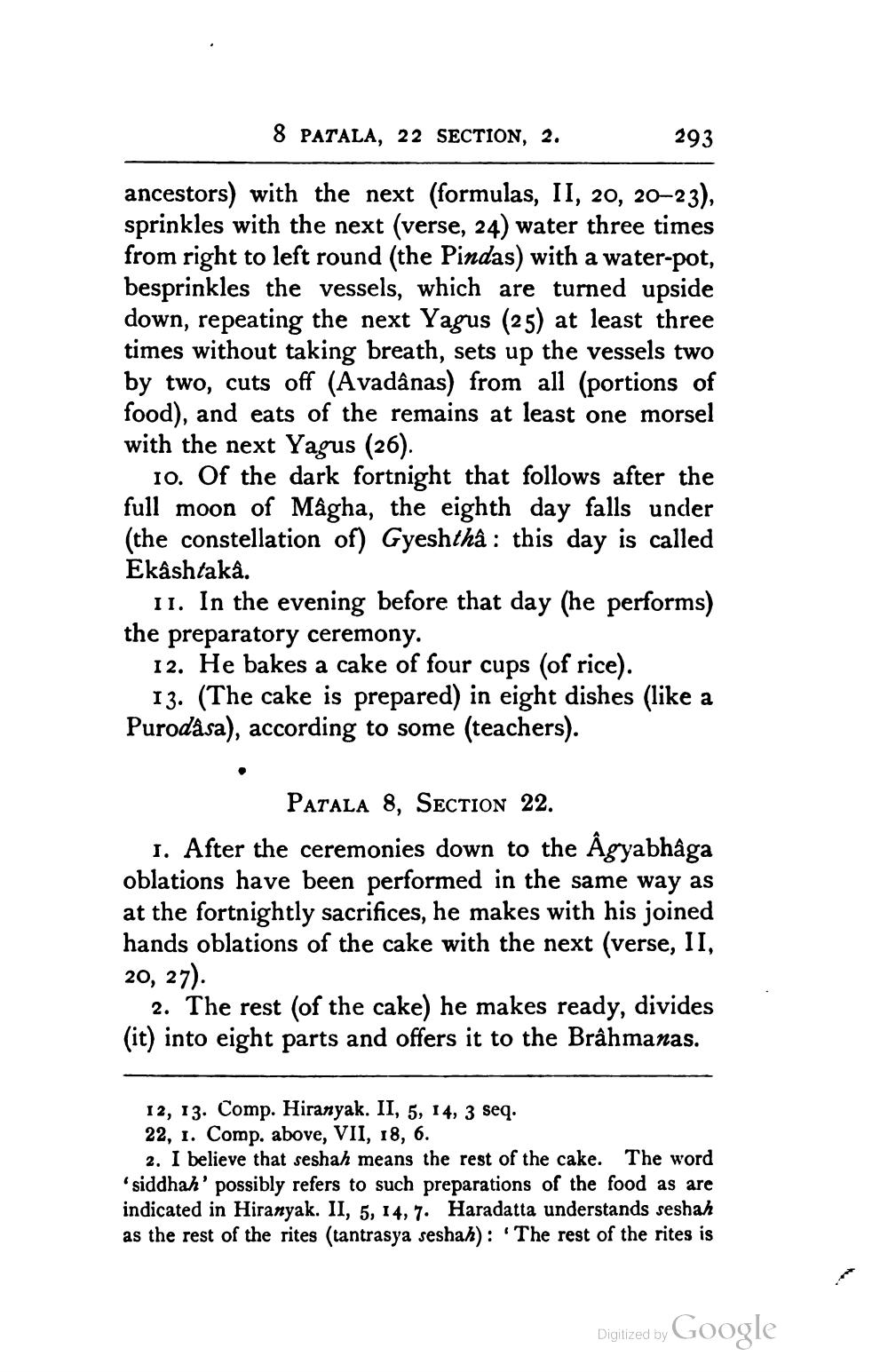________________
8 PATALA, 22 SECTION, 2.
293
ancestors) with the next (formulas, II, 20, 20–23), sprinkles with the next (verse, 24) water three times from right to left round (the Pindas) with a water-pot, besprinkles the vessels, which are turned upside down, repeating the next Yagus (25) at least three times without taking breath, sets up the vessels two by two, cuts off (Avadanas) from all (portions of food), and eats of the remains at least one morsel with the next Yagus (26).
10. Of the dark fortnight that follows after the full moon of Mâgha, the eighth day falls under (the constellation of) Gyeshthâ: this day is called Ekâshtaka.
11. In the evening before that day (he performs) the preparatory ceremony.
12. He bakes a cake of four cups (of rice).
13. (The cake is prepared) in eight dishes (like a Purodåsa), according to some (teachers).
Patala 8, SECTION 22. 1. After the ceremonies down to the Âgyabhaga oblations have been performed in the same way as at the fortnightly sacrifices, he makes with his joined hands oblations of the cake with the next (verse, II, 20, 27).
2. The rest of the cake) he makes ready, divides (it) into eight parts and offers it to the Brâhmanas.
12, 13. Comp. Hiranyak. II, 5, 14, 3 seq. 22, 1. Comp. above, VII, 18, 6.
2. I believe that seshah means the rest of the cake. The word siddhah' possibly refers to such preparations of the food as are indicated in Hiranyak. II, 5, 14, 7. Haradatta understands seshah as the rest of the rites (tantrasya seshal): The rest of the rites is
Digitized by Google




